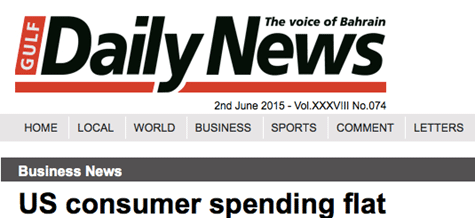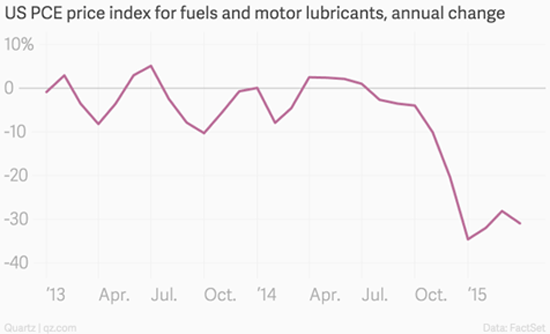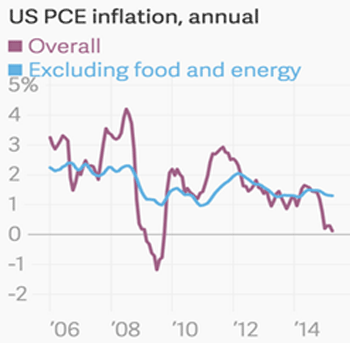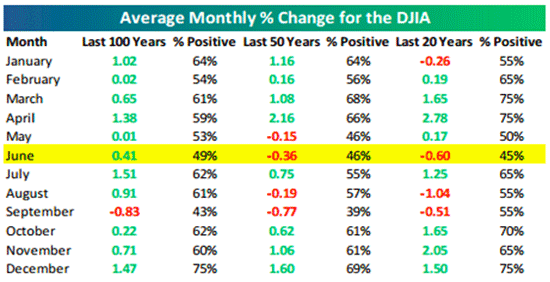“Money isn’t everything, but it sure keeps you in touch with your children.”
—J. Paul Getty
“She’s got her daddy’s money and her momma’s good looks.”
—Ricochet, lyrics from Daddy’s Money
“I was also wondering if you could send me some money? I'd really love to go to Seattle a couple times this summer, and I don't think I'd be able to otherwise. Love you, miss you.”
—June 2, 2015 email from one of my adult children
Quick, somebody call the Commerce Department! I am 100% convinced that they’re not including my college-aged children in their consumer spending calculations.
The Commerce Department reported that consumer spending was unchanged in the month of April. Yup—absolutely zero increase in consumer spending whatsoever.

And what Americans are buying are necessities. All five categories of discretionary purchases—leisure, clothing, consumer electronics, dining out, and travel—were down for the month.
I guess a flat line is better than a negative one, but the headline 0% number is worse than it looks. Spending was actually down in April, but because the decline was less than 0.1%… the Commerce Department rounded up to zero. How convenient!
For now, however, let’s ignore the government’s Fun with Numbers games and focus on why the weak consumer spending is a giant warning sign that our economy is teetering on the edge of a recession.
Remember, first-quarter GDP was revised down to a negative 0.7% growth, so we could very well slip into two straight quarters of negative GDP.
Consumers Hoarding Gas Savings: The price of a barrel of oil fell by more than 50%, and every single American household is estimated to pocket an average of $750 in 2015 from lower gas prices. However, that extra cash has not turned into higher consumer spending.

Don’t take my word for it. Walmart CEO Doug McMillon said the same thing when his company delivered lower-than-expected results: “Based on recent surveys, we know that many of our US customers are using their tax refunds and the extra money from lower gas prices to pay down debt or put it into savings.”
Inflation? What Inflation: Not only do Americans have more money in their wallets thanks to lower gas prices, the things they’re buying aren’t going up in price.

In the past 12 months through April, the Personal Consumption Expenditures (PCE) price index was up a paltry 0.1%, the smallest increase in inflation since 2009.
Incomes, Jobs on the Rise: The unemployment rate has been steadily dropping—down to 5.4% in April—but the real prize is the growth in incomes. Weekly payrolls, an accurate indicator of total US wages paid, jumped by 4.7% in April.

So despite the quartet of big gas savings, non-existent inflation, an improving job market, and higher wages… consumer spending is deader than a doornail.
What does this mean for us as investors? Several things.
I think it is HIGHLY unlikely that the Federal Reserve will raise interest rates when it meets on June 16. The absence of inflation and reluctant consumer spending shows that our economy is just too fragile to tolerate a tightening monetary policy.
Moreover, June is historically the worst month of the year for the stock market. Over the last 20- and 50-year periods, the stock market has dropped in value more than 50% of the time in the month of June.

I’m not suggesting that you sell all your stocks and equity funds tomorrow morning, but I strongly recommend that you have a clear strategy—even something as simple as the use of protective stops—to protect your portfolio when things turn ugly.
Because ugly may be right around the corner.
Seeing the signs o’ the times, it may be time to start short selling. If you’ve never done it before, let me give you a hand. Try my Rational Bear newsletter for 3 months (with full money-back guarantee) and profit from the inevitable downturn.

Tony Sagami
30-year market expert Tony Sagami leads the Yield Shark and Rational Bear advisories at Mauldin Economics. To learn more about Yield Shark and how it helps you maximize dividend income, click here. To learn more about Rational Bear and how you can use it to benefit from falling stocks and sectors, click here.

